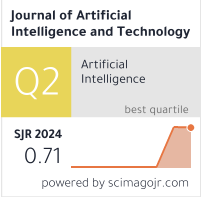A Bibliometric-Scoping Review of Machine Learning and Metaheuristics in Optimization
DOI:
https://doi.org/10.37965/jait.2025.0741Keywords:
bibliometric-scoping, hybrid, machine learning, metaheuristics, optimizationAbstract
This study adopts a bibliometric-scoping approach to review recent publications introducing metaheuristics (MHs) hybridized with machine learning (ML), referred to as MH-ML and with other MHs (MH-MH) for optimization. Using structured searches on Google Scholar covering January to October 2024, 119 relevant studies are identified through PRISMA-based filtering. Manual analysis is conducted to classify algorithmic combinations, publication trends, country contributions, and application domains. MH-ML research shows uneven emergence, with peaks in March and June, while MH-MH maintains more consistent development. Analysis of lead authorship shows that most publications stem from single-country affiliations, while dual-country cases are less frequent, with UAE–Egypt pairs being the most common. China leads MH-ML publications, whereas India dominates hybrid MH research, particularly in energy forecasting, logistics, and scheduling. Across the other leading countries, energy forecasting, global optimization, logistics, and scheduling emerged as the most common application areas, reflecting shared priorities in optimization research. Among publishers, Elsevier and Springer are the most active, and Cluster Computing (Springer) emerges as a leading venue for MH-MH. Convolutional neural networks and k-means are the most used ML techniques, while genetic algorithms and particle swarm optimization lead among MHs. This review also captures recent hybrid combinations that emerge in the 2024 literature, reflecting the ongoing innovation in MH-ML and MH-MH integration. By highlighting publication trends and regional research patterns, this review offers a timely foundation for assessing the evolution of hybrid optimization techniques and guiding future exploration of learning-based strategies.
Published
How to Cite
Issue
Section
License
Copyright (c) 2025 Authors

This work is licensed under a Creative Commons Attribution 4.0 International License.





